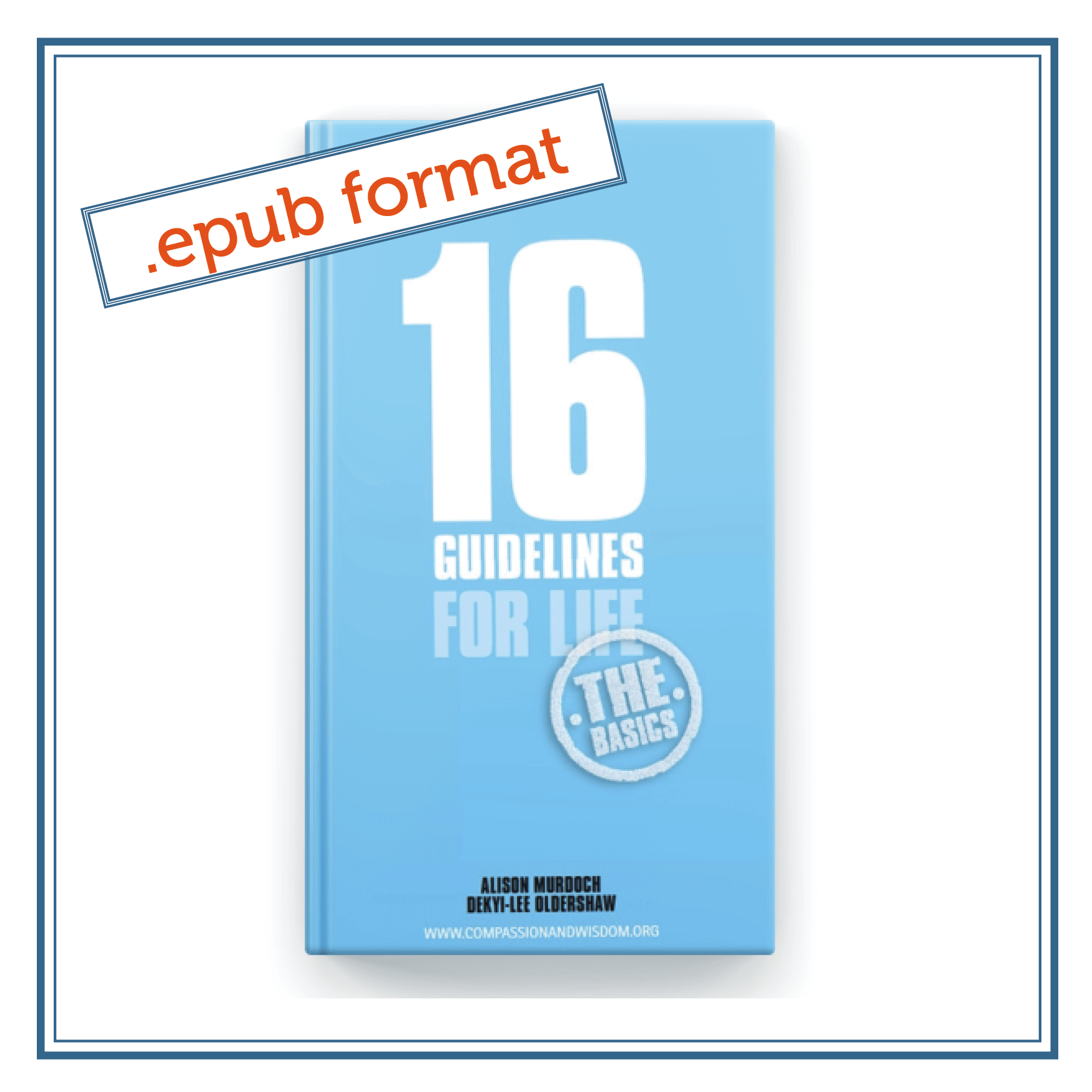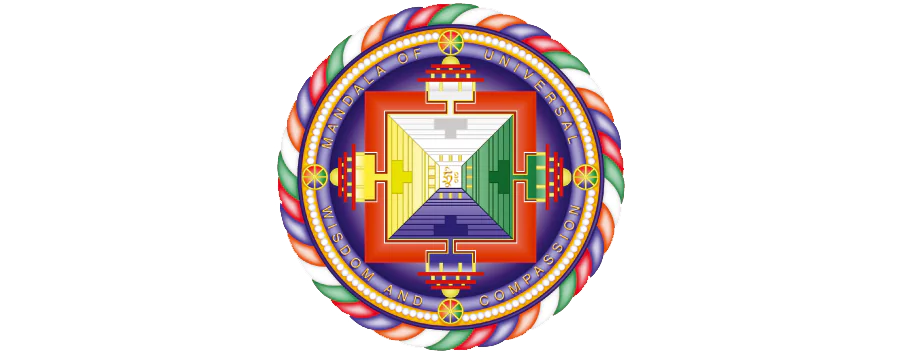The Lost Art of Contentment: How to be content in life

Have you ever felt like something is missing in your life? That no matter how much money and success you have, it’s just not enough. Sometimes it may feel that our life lacks meaning. Rediscovering How to be content could well be the answer. Contentment is a feeling of acceptance and satisfaction that comes from within. It is an inner attitude that does not rely on external events. It can lead us to experience more joy and meaning in our lives without having to rely on external sources for validation or distraction.
Continuing our 16 Guidelines series, in this blog post we explore the Lost Art of Contentment and examine different ways to invite more meaning and happiness into our lives.
Introduction: How to be content
Welcome to the Lost Art of Contentment! In this journey, we will explore how to feel more contentment and meaning in life. Examining our mental health is a key factor on this journey. We can learn how to cultivate mental qualities like gratitude, acceptance, and joy while not ignoring our body and physical well-being.
Practising Contentment can also makes us more resilient. When life’s problems arise, we can choose to meet them with gratitude instead of feeling overwhelmed by hardship or despair. By learning how to accept even uncomfortable emotions and being kinder towards ourselves when things don’t go as planned, we can move through life with more ease knowing that whatever happens will always pass eventually.
“Although you may not always be able to avoid difficult situations,you can modify the extent to which you can suffer by how you choose to respond to the situation.” ― Dalai Lama XIV, The Art of Happiness
Once we learn to appreciate what we already have instead of constantly chasing material possessions or status symbols, then our time and energy is freed up for creating meaningful relationships or pursuing our most heartfelt passions.
Contentment can be misunderstood as complacency, passivity or even laziness. But nothing could be further from the truth. Contentment is an active attitude and takes courage in a world that always seeks to distract us or make us reach for more or better. Contentment encourages our inner growth while allowing us to stay grounded and connected with what matters most. This can help us develop genuine self-love based on true understanding and appreciation which are essential for lasting inner peace.
So if you’re ready to discover the beauty of contentment and unleash its power within yourself, let’s get started!
Now let’s dive into what contentment is…
What is contentment
Let’s try something here… Imagine a clear lake, on the surface, strong winds cause waves that disturbing the lake’s surface. In the depths there lies still water, that cannot be moved; it remains calm and stable despite the commotion on the surface.
The calm of the depths of the lake can be likened to contentment. When we develop a strong sense of contentment, the ups and downs of life, like the waves on the surface, are far less troubling for us.
“Contentment is a state of mind that has nothing to do with money, objects, or other people. Nor does it concern itself with how much we have, or how little. Instead, it’s about finding a point of stillness within ourselves which allows us to be quietly happy whatever our situation might be, and to be at peace with who we are.”
– excerpt from 16 Guidelines For Life by Alison Murdoch and Dekyi-Lee Oldershaw
Developing a sense of contentment involves an acceptance of our own life and an appreciation for what we have now. It is finding joy and satisfaction within ourselves, rather than relying on external measures to define our happiness.
Contentment isn’t about pretending everything is perfect or ignoring problems when they arise. Instead, it involves recognizing difficulty without letting it consume us, practising gratitude for all we have been given, and avoiding comparing ourselves to others. By learning how to be content with ourselves and our lives, we can experience true freedom from worry and stress – even amidst uncertainty or turmoil.
The benefits of contentment

Contentment brings many benefits. Spending time focusing on what we already have, rather than what is missing, helps us appreciate the present moment and feel more fulfilled.
Creating a gratitude list is one of the best ways to practice gratitude and nurture contentment in our lives. By writing down a few things that we are grateful for each day, we start to shift our attention away from what isn’t working and put effort into all the positive aspects of life. Doing this regularly encourages us to build an attitude of contentment and find peace within ourselves.
Cultivating an attitude of contentment allows us to better enjoy relationships with others, take pleasure in activities such as hobbies or sports, and connect deeply with nature and its beauty. This sense of satisfaction opens up opportunities for personal growth and development which ultimately leads to greater fulfilment in life.
The attitude of contentment
The first step towards understanding how to be content with your life and lead a good life is to cultivate an attitude of acceptance. Taking a deep breath, we can find the courage to accept what life brings us – both good and bad – and learn that it’s okay if things don’t always go our way.
“When your mind is narrow, small things easily agitate you. Make your mind an ocean.” – Lama Thubten Yeshe
By learning how to be more content with our life and comfortable with uncertainty, we are better able to find peace within ourselves even when faced with difficult circumstances. We can choose to let go of things that we cannot control.
“If the problem can be solved why worry? If the problem cannot be solved worrying will do you no good.” ― Shantideva
In addition to cultivating an accepting attitude, it is also important to spend time connecting with the simple joys of life such as spending time in nature or enjoying a hobby. These activities can help us feel content by reminding us of all the beauty in life despite its hardships.
Engaging in self-reflection can help us understand how to be content with our lives. Often our self-cherishing thoughts – caring for what I want, over what others want – are what cause us discontent. When we analyse these and understand their self-centred nature, this can help us to develop a sense of cherishing and thinking of others, which leads us to practice compassion.
Moreover, they give us perspective on what truly matters and bring us closer to finding contentment in everyday life.

Cultivating contentment in everyday life
Have you ever felt that life is too busy, leaving no time to find happiness and satisfaction? We all have moments of feeling overwhelmed, but it is possible to find satisfaction and contentment in our everyday lives. Here are 4 simple things we can do to feel good:
- Self Care – Taking care of ourselves mentally and physically allows us to focus on the present.
- Find Gratitude – Acknowledge the little things that bring joy into your life.
- Stay Connected – Cultivate meaningful relationships with family, friends, or even strangers.
- Enjoy Life’s Simple Pleasures – Appreciate nature’s beauty, listen to music, and read a book…the possibilities are endless!
- Less expectation – Letting go of any expectations for perfection will enable us to live a more fulfilling life.
These strategies may seem small but they help create balance and peace within ourselves. By taking practical steps towards cultivating contentment, we can take control of our happiness.
A few quick tips on how to develop contentment
To develop contentment in your own life you can try these 4 simple steps:
- Acknowledge your emotions: Don’t deny or push away how you feel; instead, accept and express them without judgement.
- Take care of yourself: Nurture yourself through physical activities such as exercise, eating well, and getting enough rest – all these will help keep your mind healthy.
- Find joy in small things: Learn to appreciate simple pleasures like spending time outdoors or engaging in creative pursuits. This allows us to enjoy life’s moments no matter what situation we find ourselves in.
- Practice gratitude: Being thankful for what you already have helps create a sense of calmness and stability during turbulent times – it reminds us that there is always something to be grateful for.
Watch this inspirational talk on Reclaiming Joy.
Let’s now take a look at desire and its role in driving us away from contentment! If we better understand this, we can learn how to develop the opposite
The role of desire

Having explored the ways to cultivate and find contentment above, it is now important to discuss how desire plays a role in finding true happiness. As human beings, we often find ourselves caught up in an endless cycle of wanting and obtaining more than we already have.
Thinking about how great it would be to have more money, comparing ourselves to others, instead of being thankful for what we have. This way of thinking leads us away from contentment, we should try to avoid comparing ourselves to others and put effort into accepting what we have.
The Cambridge dictionary’s definition of contentment states: ‘happiness and satisfaction, often because you have everything you need.’
Rather than focusing on feeding our desires for materialistic items or situations, we should instead focus on cultivating satisfaction and gratitude for what we currently have. Simply put, this means being grateful and learning to appreciate all aspects of life – both good and bad.
A good book to help individuals understand this concept further is ‘The Art of Happiness’, by His Holiness the Dalai Lama and Dr. Howard C. Cutler. It encourages readers to stay focused on the present moment rather than seeking fulfilment elsewhere; so they can better appreciate life in its entirety, become more grateful and find peace.
Finding inner peace
According to The American Institute of Stress, around “77 per cent of people experience stress that affects their physical health”. This statistic is a telling reminder that many people are in dire need of finding inner peace.
Inner peace can be essential for leading a contented life and good quality of life, so understanding how to achieve it is an important step towards gaining more inspiration and well-being in our lives.
The key to achieving this calm lies within ourselves: we must learn how to be content with our own lives, to accept things as they are in the very moment, without wishing them any other way or feeling like something else should have happened. It requires us to let go of our constant wish to control external factors.
Through this practice, we can begin to cultivate true contentment with what we have instead of constantly striving for something better. As such, we become calmer, more focused on the present and ultimately more at ease with ourselves.
By learning how to find inner peace, we open up a world full of possibilities for living a more fulfilling life – one where relationships with others are strengthened and genuine happiness is achieved from within.
Contentment and relationships

Having explored what peace is, we can now explore the idea of finding contentment in our relationships with friends. A good friend is invaluable when it comes to feeling secure and loved. Whether that’s a romantic relationship or just enjoying quality time with family and friends, being able to laugh and share experiences brings us great joy.
It’s important to be mindful not to let negative thoughts and words lead us down an unproductive path where criticism becomes rampant; instead, focus on gratitude for the people around you who bring more contentment into your life; be grateful that they’re around!
On top of this, spending time volunteering at a charity organization, like an animal shelter or care home, can give us a greater sense of purpose and help build meaningful connections with others. These activities also provide immediate evidence that individual effort matters and can have a positive impact on society as a whole.
In turn, this helps remind us that no matter how challenging things seem in our own lives, there are always meaningful ways to make other peoples’ lives better.
Overcoming challenges
Life throws us many challenges, and it’s important to find ways to deal with them. To help you on your journey of becoming more content with your life, here are a few tips for overcoming these obstacles.
The first step is to remember to realize that the bad things that happen don’t define who we are. We can use our experiences as lessons instead of letting them hold us back or bring us down. Secondly, focus on what you have rather than worry about what you don’t have. If money is an issue, look at how far you’ve come financially and be grateful for those successes.
Finally, it’s useful to know that even when something happens that we didn’t plan for or want, there will always be a way forward if we stay positive and keep going.
By following these steps, you’ll begin to understand how to be content and able to face any challenge head-on without feeling overwhelmed or defeated by the situation.
The role of mindfulness

Mindfulness can also play an important role, by helping us stay present and accepting of whatever comes our way. The art of mindfulness can guide us through life’s twists and turns; inspiring us to be aware of our innermost feelings, thoughts and emotions.
To truly understand the role that mindfulness plays in attaining peace and happiness, there are a few simple things that we must remember:
- Mindfulness, contrary to many modern definitions can be considered the art of remembering ie. remembering the sensation of the breath in meditation
- By developing this skill, we can develop a stronger awareness as we can choose to hone our attention on the desired object
- With a more stable awareness, we can begin to notice thoughts and emotions as they arise and maintain distance from them
- The less we associate with our emotions and accept them as they are, the more we can develop contentment with all the things that arise
In essence, true contentment isn’t about achieving goals or acquiring material possessions; instead, it is about accepting who you are right now as well as appreciating your surroundings just as they are – and mindfulness helps with this. This understanding allows us to let go of expectations, surrendering ourselves to being at one with each moment, no matter how imperfect it may seem.
Through embracing this mindful approach, we will find that there is peace beyond our wildest dreams – if only we choose to look for it.
With the realization that freedom exists within our reach, we move into the next chapter – The Art of Letting Go.
The Art of Letting Go
The Art of Letting Go is an essential part of living a contented life. To grow and find peace, we must accept that things change, and sometimes these changes can be difficult to process – it doesn’t happen overnight. It’s important to recognize when it’s time to move on from certain situations or relationships in order to create space for something new. In this way, we can clear the path for personal growth.
Letting go doesn’t have to mean giving up all luxury items like a luxury car; rather, it’s about understanding our attachment to material possessions and being willing to let them go if necessary.
We may think having a luxurious car or nicer house brings us happiness but ultimately nothing outside ourselves grants lasting joy — true satisfaction comes from within. Learning how to release what no longer serves us allows us more freedom and encourages self-growth.
We must focus on the present instead of clinging to the past or worrying about the future because that’s where real contentment lies — not in external items or attachments. Taking moments throughout the day to appreciate what’s right here, right now, helps cultivate peace and joy in life.
Living in the present moment

Living in the present moment is essential for contentment and peace. It’s an opportunity to practice being mindful, allowing ourselves to be fully aware of our thoughts and actions at that very moment.
When we become too focused on either past or future events, it can be difficult to stay grounded in the present. To truly experience the beauty life has to offer, it’s important to take a step back and observe the world around us without judgement or expectation.
We may find that this way of living helps us recognize what matters most, which often leads to developing more meaningful relationships with those around us as well as ourselves. This newfound appreciation for life can help bring about a sense of clarity, leading to greater joy and satisfaction throughout each day.
With all of these benefits in mind, let’s explore how simplifying one’s life can lead to even greater contentment.
Simplifying life
It is often said that simplicity is the key to contentment. As Henry David Thoreau said:
“Our life is frittered away by detail. Simplify, simplify, simplify! I say, let your affairs be as two or three, and not a hundred or a thousand; instead of a million count half a dozen, and keep your accounts on your thumb-nail.”
Simplifying our lives can have a calming effect on our minds and help us experience contentment more deeply.
Here are three tips for simplifying your life:
- Prioritize what matters most: Make sure you focus on the things that matter to you and let go of anything else that doesn’t serve your purpose.
- Practice minimalism: Minimizing possessions and material items can reduce clutter both physically and mentally, freeing up space for creativity, relaxation, and exploration.
- Establish routines: Establishing simple daily habits like waking up early or meditating helps create consistency so that we don’t get bogged down in decision-making fatigue throughout the day.
By following these steps, we can make strides towards achieving greater contentment in daily life, as we begin to appreciate the beauty of simplicity rather than seeking out complexity at every turn. Being intentional about prioritizing and focusing on only those activities which bring joy will lead to living each moment more fully and meaningfully.
Conclusion
The lost art of contentment is something that can be re-discovered and practised. It requires a shift in our outlook on life, from one centred around materialism to one focused on acceptance and gratitude. We must strive to find a balance between the physical and spiritual aspects of our lives, allowing us to live with more joy, appreciation and meaning.
Contentment brings an immense sense of freedom – an ability to enjoy each moment without worrying about what comes next or feeling overwhelmed by unmet expectations. The journey towards true contentment is unique for every person but when we reach it, it can bring a profound level of happiness and satisfaction into our lives.
Contentment is a skill worth mastering: it has the power to bring peace and happiness into our lives, no matter what obstacles we may face. When practised regularly, contentment can help us find balance and joy in relationships with others.
We should remember that desire isn’t something to be feared or avoided; rather, it’s an essential part of the human experience that can be used to enhance our everyday life.
As you continue along your journey towards contentment, know that there are plenty of different paths available – just as each person’s individual needs are unique. It takes time and practice to discover which strategies work best for you.
Don’t forget to savour every moment: like riding a wave, sometimes all we need is patience and trust for everything else to fall into place.
So embrace contentment with open arms – let it fill up your heart until its gentle warmth radiates throughout your body like sunshine on a summer day!
With enough dedication and self-awareness, we can all develop a sense of contentment and bring more meaning to our lives.
Interested in the 16 guidelines?
Are you interested in learning more about the 16 guidelines?
If so check out 16 Guidelines For Life by Alison Murdoch and Dekyi-Lee Oldershaw.
The book was first published in this edition in 2009 and is now available asan ebook. Since the first 16 Guidelines book was published, it has inspired a range of practical projects – in schools, colleges, businesses, healthcare organisations, drug rehabilitation centres and prisons – around the globe.

The book provides a comprehensive introduction to the 16 Guidelines and the four Wisdom Themes with thought-provoking interpretations, role models and guided reflections.
It is an ideal companion resource for anyone with an interest in universal ethical values as represented by the 16 Guidelines. The download also includes a printable version of the 16G cards.

Foundation for Developing Compassion and Wisdom (FDCW)
At FDCW we are committed to a more compassionate, wiser world. We provide resources, courses and training to develop qualities such as kindness, patience and courage – qualities which are essential for meeting the challenges of the world we all share.
The Foundation for Developing Compassion and Wisdom (FDCW) was established as a global charity based in London in 2005. Since then we have provided secular training, programmes and resources across many sectors of society – schools, universities, hospices, workplaces, healthcare, youth groups and community centres. Our courses have reached thousands of people across the world through our dedicated and growing network of facilitators in more than 20 countries.
Support our Work
As a non-profit organization, FDCW relies on donations like yours to continue producing valuable resources and hosting events. You can support us by sharing our newsletter, following us on social media, and making a donation. Every contribution, big or small, helps us in our efforts and we truly appreciate it.






